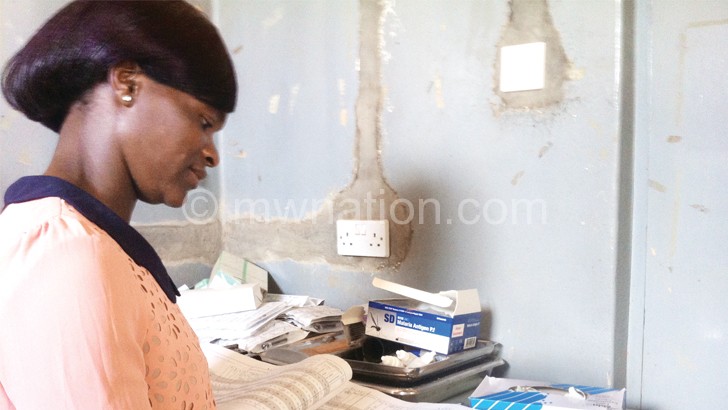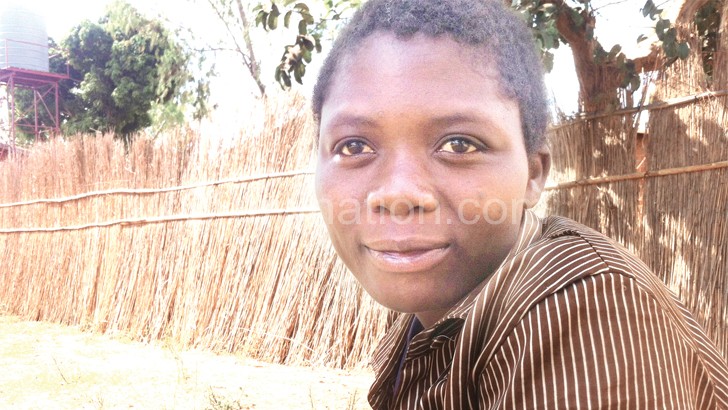My womb, their choice
Despite the robust campaign for family planning, women and girls of reproductive age are still struggling to implement their need to limit and space childbirths, writes EPHRAIM NYONDO
She is only 20, of course; but, already, she has three children and the fourth is on the way.
She barely looks her age. Her trembling limbs are tired and her face is pale and hollow.
She speaks in low tones and every word she utters reveals the depth of excruciating pain inside.

Even from a distance, you can tell that Patuma Yusuf—who hails from Luwalika Village, Traditional Authority (T/A) Katuli in Mangochi—is carrying a body that is weak and tired.
Surprisingly, she denies being sick, but prefers being seen as a woman heavily burdened with pregnancy.
“I think I am tired, tired of giving birth,” she says, adding: “I have given birth to three children in a space of four years in marriage. My body is tired and I can feel the pain right now.”
Unfortunately, Yusuf will have years to live with it.

In the area she comes from, women still go up to 11 children, says Maria Jemusi, a nurse/midwife technician at Katuli Health Centre where we met Yusuf.
“Look,” says Jemusi, showing the delivery figures for the month of June without showing the name of the person: “I just delivered her 11th child. She is 34, but still looks strong.”
Beyond that, there is Yusuf’s husband. They married six years ago, but only stayed together for two formative years. The husband now stays in South Africa.
“He only comes once, or twice a year. When he comes, we don’t have time to talk issues. In the end, whenever he leaves, it does not take me a month to realise that I am pregnant again,” she says.
Yusuf stays with her mother. Paradoxically, Yusuf confides that her mother, 38, had just given birth to her eighth child. She adds her mother keeps reminding her to give birth more because children are wealth.
To mean, from her husband, her home and the community around her, Yusuf has an uphill task if she could advance that her body is tired of giving birth to more.
In fact, that is what she wants.
“I don’t want any more children. My body is very weak. I am afraid that I get pregnant again after this, I will not survive,” she says.
What Yusuf wants, to stop giving birth, is part of family planning interventions that the Malawi Government advances in the National Sexual and Reproductive Health Policy.
According to the policy, family planning has been singled as a key development issue for it provides opportunities, through various contraceptives, for couples to space and limit childbirths to reduce population growth.
Government fears that if the growth rate is left unchecked at 2.8 percent annually, the Malawi population, according to 2014 UN estimates, will be 37 million by 2050.
This translates into an average of five children per woman, says spokesperson for the Ministry of Health Adrian Chikumbe.
The fear, adds Chikumbe, is that nearly half of this population will be below 15 years and this age group, being less productive, will have tremendous repercussions for the economy.
“Social services will be over-burdened; there will be need for more schools, more teachers, more hospitals, more health workers, minimal land per household, hunger due to minimal produce per household, deforestation leading to climate change, increased unemployment etc,” he says.
That is why this moment—argues Jesman Chintsanya, demography lecturer at Chancellor College—presents a demographic dividend for Malawi to rethink its population so that it is in line with its development policies.
In fact, that is why the quest for family planning comes in.
“Family planning is a developmental issue which impinges on the development of constituencies in terms of health care, schools, employment and quality of life. It saves lives by reducing the risk of unwanted pregnancies and reducing maternal deaths by 25 to 30 percent,” he adds.
Interestingly, Chikumbe notes that family planning is wanted in Malawi as evidenced by the 2010 Demographic Health Survey (DHS) which showed that 37 percent of women wish to limit and 36 percent want to space births.
Definitely, Yusuf would hardly disagree with Chikumbe.
“I know family planning and I know most of the contraceptives that we are taught by our health advisors. I prefer injection. However, my husband is completely against it. He calls often just to remind me against using contraceptives. He tells me that they make women fat, they cause cancer and threatens if he hears about it he will deal with me,” she says.
Even Jemusi attests that Yusuf’s experience represents the challenges most women in rural Katuli face.
“In terms of getting the message of family planning, I can ascertain that the job is being done. I think with collaboration of HSAs, NGOs and local leaders, we have managed to get the message far and wide. I know this because I get a lot of questions from different women during antenatal clinics about contraceptives,” she says,
The 2010 DHS shows that knowledge of family planning methods in Malawi is nearly universal: 98 percent of all women and 99 percent of all men aged 15–49 know at least one modern method of family planning.
In fact, the 2010 DHS also shows that more than four in 10 married women currently use a modern method of family planning.
However, despite the marginal increase in usage, most women are still struggling to demand the contraceptives due to pressure from their husbands and the community, says Jemusi about the experience in Katuli, Mangochi.
What Jemusi says agrees with 2010 DHS findings, which revealed that 26 percent of married women have an unmet need for family planning—14 percent of women have a need for spacing births and 12 percent for limiting births.
Unmet need for family planning is defined as the percentage of married women who want to space their next birth or stop childbearing entirely but are not using contraception.
The problem is highest among poorer women and those with no education like Yusufu. How can this trend be reversed?





